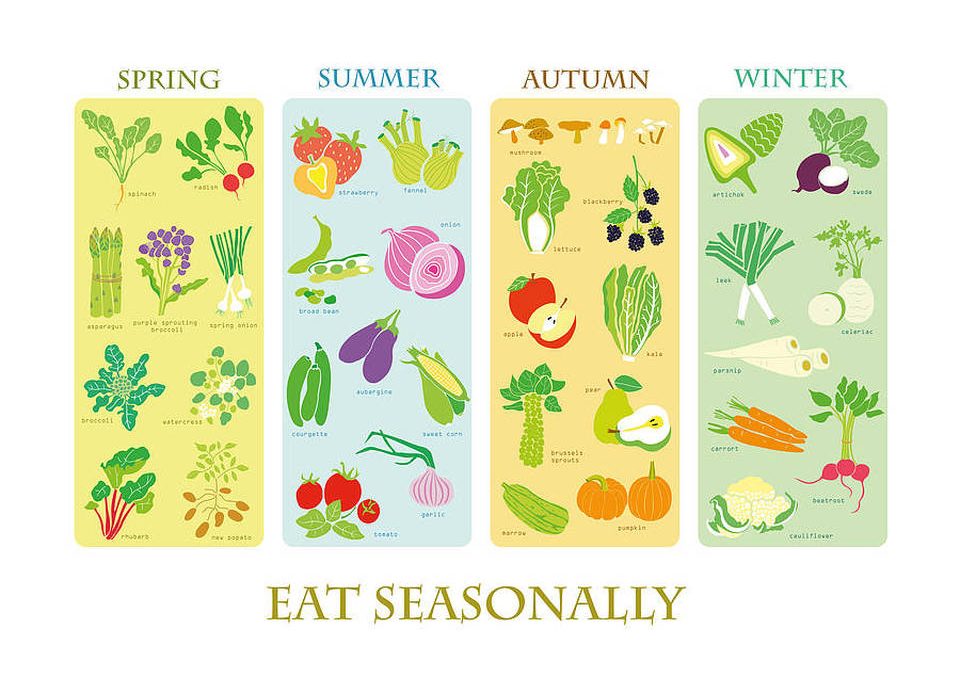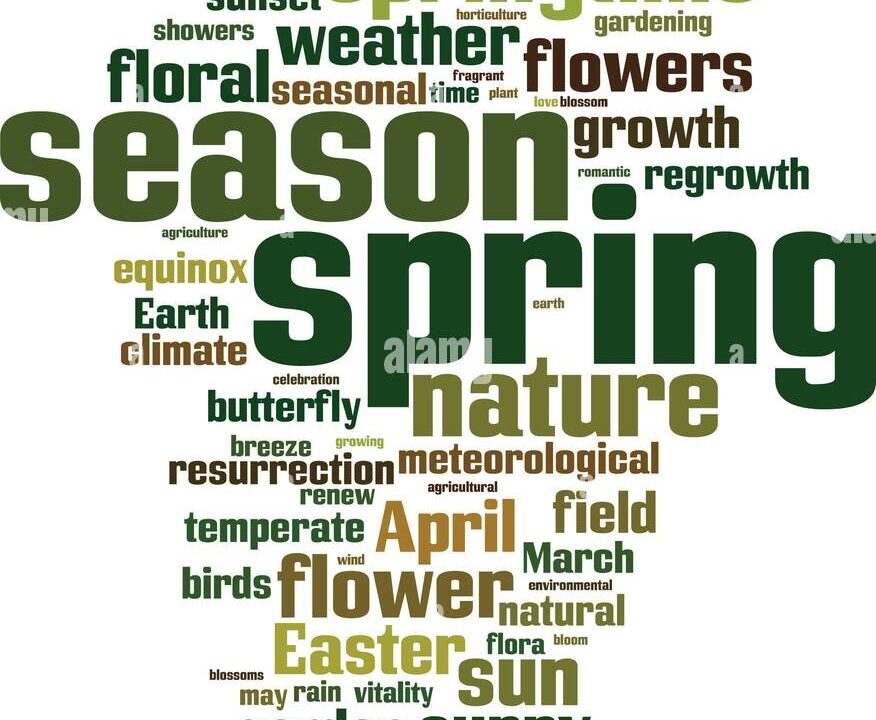Seasonal Foods

Therapist of the Month – March 2022
12/03/2022
TRY THIS! Using Seasonal Food Remedies
12/04/2022To maintain good health through the seasons, it’s important to learn and use foods available that grow naturally in each season. We will look at seasonal foods relevant to UK, but with own research done, anyone can identify what seasonal foods are local or national as relevant.
Seasonal food relates to fruits, vegetables and herbs that grow in certain seasons (Winter, Spring, Summer or Autumn). There are many medicinal herbalists and nutritionists who believe that eating foods seasonally build up the immune system to fight off viruses and infections relevant to that season. It is empowering to know that own natural remedies can be sourced locally but it is important to do own research and study before doing so. Each of us have different health needs, so knowing what your health lacks or needs boosting with is valuable. Eating foods relevant to the season can be used to protect health as well as produce natural remedies for healing. It is a holistic way of staying connected to nature that stimulates the senses and feeds the gut microbiome so one can be connected to self. There are many probiotic foods that grow seasonally and the variety of healthy foods are needed to feed various parts of the body. Also, eating seasonal foods grown locally and organically are beneficial for the environment because currently certain fruits, vegetables, herbs or tropical foods are grown genetically modified, using pesticides and produce pollution because they are imported by airplane or freight from another country.
In the UK, there are websites like, The Association of UK Dietitians, that give advice about what foods are in seasons, so readers can then do own research.
From December to February (UK Winter), the most common fruits are Apples, Pears, Rhubarb and Elderberries. The most common vegetables are Beetroot, Brussels Sprouts, Broccoli, Cucumber, Cabbage, Carrots, Celeriac, Celery, Chicory, Jerusalem Artichokes, Kale, Leeks, Mushrooms, Onions, Parsnips, Radishes, Sorrel, Spring Greens, Spring Onions, Squash, Swedes, Turnips, Watercress, Winter Squash. A lot of these vegetables are great for hot meals like soups and stews to build the immune system to fight of viruses like Influenza or Coronavirus.
From March to May (UK Spring), the most common fruits are Rhubarb and Strawberries. The relevant vegetables include Artichoke, Asparagus, Beetroot, Cabbage, Carrots, Chicory, Elderflowers, Lettuce, New Potatoes, Kale, Marrow, Morel Mushrooms, Parsnips, Peas, Peppers, Radishes, Rocket, Samphire, Sorrel, Spinach, Spring Greens, Spring Onions or Watercress. A lot of these vegetables are ideal for salads in the warmer months that contain a lot of foods that build up the gut microbiome.
From June to August (UK Summer), the most common fruits are Blackberries, Blackcurrants, Blueberries, Cherries, Gooseberries, Greengages, Loganberries, Raspberries, Redcurrants, Rhubarb and Strawberries. Summer grown vegetables include Asparagus, Aubergine, Beetroot, Broad Beans, Broccoli, Cauliflower, Chicory, Chillies, Courgettes, Cucumber, Elderflowers, Fennel, French Beans, Garlic, Lettuce, Marrow, New Potatoes, Peas, Peppers, Pumpkin, Radishes, Rocket, Runner Beans, Samphire, Sorrel, Spring Greens, Spring Onions, Summer Squash, Sweetcorn, Swiss Chard, Tomatoes, Turnips and Watercress. Summer is the season with the largest numbers of fruits, especially berries and variety in produce.
From September to November (UK Autumn) offers fruits such as Blackberries, Cranberries, Damsons, Elderberries, Pears, Plums, Raspberries, Rhubarb, Strawberries. The vegetables that flourish are Aubergine, Beetroot, Broccoli, Brussels Sprouts, Butternut Squash, Carrots, Cauliflower, Celeriac, Celery, Courgettes, Chestnuts, Chicory, Cucumber, Garlic, Jerusalem Artichokes, Kale, Kohlrabi, Leeks, Lettuce, Mangetout, Marrow, Onions, Parsnips, Peas, Peppers, Potatoes, Pumpkin, Radishes, Rocket, Runner Beans, Samphire, Sorrel, Spinach, Spring Greens, Spring Onions, Summer Squash, Swede, Sweetcorn, Swiss Chard, Tomatoes, Turnips, Watercress, Wild Mushrooms and Winter Squash. (Seasonal fruit and vegetable listings from The Association of UK Dieticians)
Source and buy locally produced wholefood whenever possible because it nourishes your body, health and the environment.




